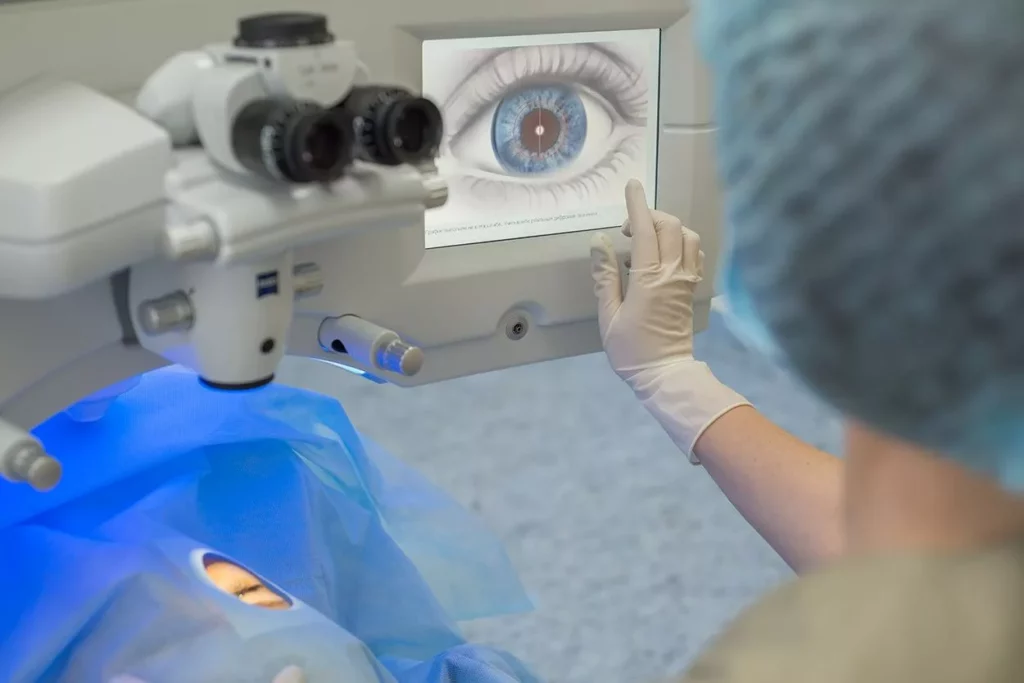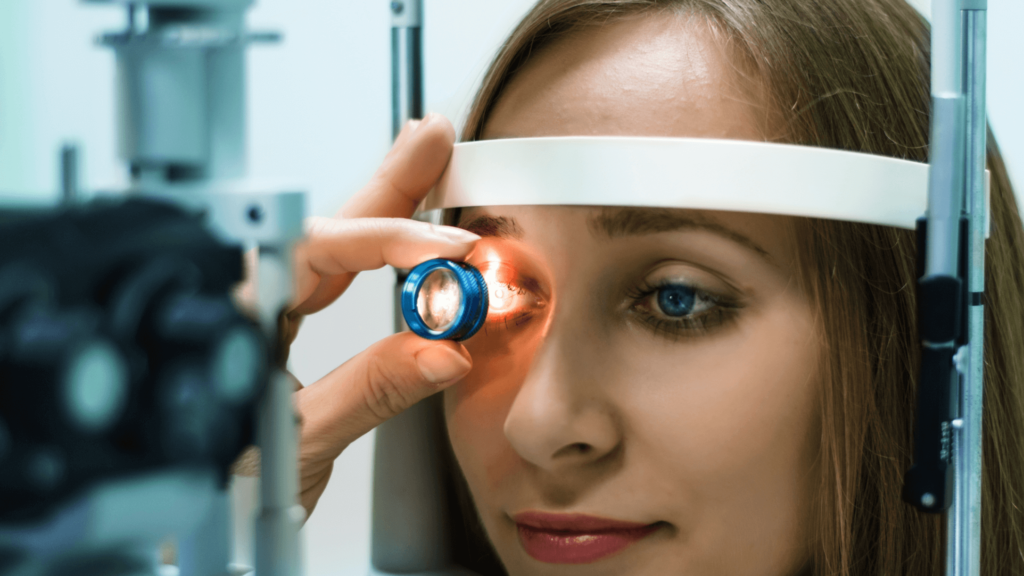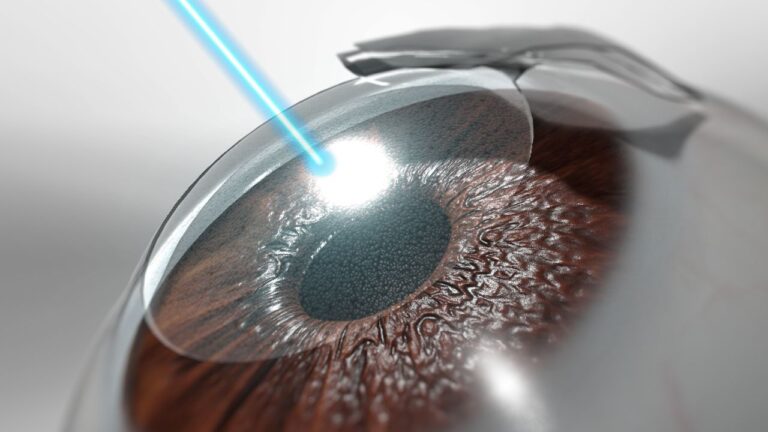Eye Surgery LASIK: Is It the Right Choice for Your Vision?
Choosing to undergo eye surgery, particularly LASIK, is a significant decision that can impact your quality of life. As vision correction technology advances, many individuals find themselves considering this popular procedure. In this article, we will explore various aspects of LASIK, helping you determine if it is the right choice for your vision needs.
Understanding LASIK Eye Surgery
Eye surgery lasik, or Laser-Assisted In Situ Keratomileusis, is a surgical procedure designed to correct common vision problems such as nearsightedness, farsightedness, and astigmatism. The procedure reshapes the cornea, allowing light entering the eye to focus directly on the retina for clearer vision.
By utilizing advanced laser technology, LASIK has transformed the landscape of vision correction. Patients can experience significant reductions in their reliance on glasses or contact lenses. However, understanding the foundational elements of LASIK is crucial before considering it as an option.
The Science Behind LASIK
The science behind LASIK is rooted in the principles of optics and human anatomy. When light passes through the cornea, it should ideally bend in such a way that it focuses on the retina. If the shape of the cornea is irregular, however, it can cause blurred vision.
During LASIK surgery, a precise laser is used to remove microscopic amounts of corneal tissue, reshaping the cornea to improve its refractive power. This alteration in shape allows light to focus correctly on the retina, resulting in clearer vision. The procedure is quick, often completed within minutes, with minimal discomfort for the patient.

The LASIK Procedure: A Step-by-Step Guide
Consultation: Before the surgery, a comprehensive eye examination will be conducted to evaluate your vision and determine if you are a candidate for LASIK.
Pre-operative Care: You may be advised to stop wearing contact lenses a few weeks prior to the surgery to ensure accurate measurements of your cornea.
Anesthesia: On the day of the procedure, numbing eye drops will be applied to prevent discomfort.
Flap Creation: A thin flap on the cornea is created using either a microkeratome or a femtosecond laser.
Reshaping the Cornea: The laser is then used to reshape the cornea, allowing it to correct your specific vision issues.
Flap Replacement: After reshaping, the corneal flap is repositioned, where it adheres naturally without the need for stitches.
Recovery: Patients can typically resume normal activities within a day or two, with full recovery occurring in a few weeks.
Each step of the LASIK procedure is meticulously designed to ensure safety and improve outcomes. As technology continues to advance, LASIK techniques continue to evolve, leading to faster recovery times and better results.
Moreover, LASIK is not just about the immediate improvement in vision; it can significantly enhance the quality of life for many individuals. Imagine waking up in the morning and being able to see the alarm clock without fumbling for glasses or dealing with the hassle of contact lenses. Many patients report a newfound freedom in their daily activities, from sports to swimming, where clear vision is essential. Additionally, the long-term financial savings on glasses and contact lenses can be substantial, making LASIK a worthwhile investment for many.
However, it is also important to consider the potential risks and side effects associated with LASIK. While the majority of patients achieve excellent results, some may experience temporary issues such as dry eyes or glare, particularly at night. A thorough discussion with your ophthalmologist about your specific vision needs and any underlying health conditions can help mitigate these risks and set realistic expectations for the outcomes of the surgery. Read more about improving your vision at https://www.health.harvard.edu/staying-healthy/6-ways-to-improve-and-protect-your-vision
Evaluating Your Eligibility for LASIK
Determining whether LASIK is a suitable choice requires careful consideration of various factors. Not everyone is a good candidate for this type of eye surgery, as several health conditions and personal characteristics can influence eligibility.
Health Conditions and LASIK
Certain health conditions may preclude individuals from undergoing LASIK. For instance, if you have autoimmune disorders, uncontrolled diabetes, or severe dry eye syndrome, LASIK may not be recommended. Additionally, if you have a history of keloid formation or corneal diseases, further evaluation will be needed.
The best way to confirm eligibility is through a comprehensive evaluation by an eye care professional. They will assess your overall eye health and discuss any potential concerns based on your medical history. It’s also essential to disclose any medications you are taking, as some can affect healing and recovery post-surgery. Your eye doctor will consider these factors when determining the best course of action for your vision correction needs.
Age and LASIK Eligibility
Age is another critical factor in evaluating LASIK candidacy. Most eye specialists recommend that patients be at least 18 years old, as younger individuals often experience changes in their vision as they grow. Additionally, patients should have a stable prescription for at least a year before the surgery.
While there is no upper age limit for LASIK, some older adults may develop age-related vision changes, such as presbyopia, which may require different forms of treatment. For individuals above a certain age, the need for reading glasses is common, and this reality should be considered in the decision-making process. Moreover, it’s worth noting that older patients may also have other age-related eye conditions, such as cataracts or glaucoma, which could complicate or contraindicate LASIK surgery. Therefore, a thorough assessment of not just refractive errors but overall eye health is crucial for older candidates considering LASIK.
The Benefits of LASIK Eye Surgery
When considering LASIK eye surgery, it is essential to weigh the potential benefits against the risks. Many patients find that the advantages significantly enhance their quality of life.
Long-Term Vision Improvement
One of the most significant benefits of LASIK is the long-term improvement it can provide in vision clarity. Many patients achieve 20/25 vision or better following the procedure, allowing them to engage in daily activities without the need for glasses or contact lenses.
Studies indicate that a large percentage of LASIK patients are satisfied with their vision post-surgery, often reporting a newfound freedom in their lifestyle. With clearer vision, activities such as driving, exercising, and playing sports become more enjoyable. Furthermore, the ability to see clearly in various lighting conditions, whether indoors or outdoors, enhances overall safety and confidence, particularly for those who enjoy nighttime activities or travel frequently.
Lifestyle Changes After LASIK
Post-surgery, many patients experience profound lifestyle changes. The ability to wake up and see clearly without reaching for glasses revolutionizes daily routines. Whether participating in outdoor activities or simply enjoying a movie, the enhanced vision enables greater freedom and comfort.
Additionally, those who were previously dependent on glasses or contacts often find financial savings in the long run, eliminating the need for constant lens purchases and maintenance. Overall, the lifestyle benefits of LASIK can be transformative. Beyond the practical aspects, many patients report an increase in self-esteem and confidence, as they no longer feel hindered by their visual impairments. Social interactions can also improve, as individuals feel more at ease in group settings without the distraction of adjusting glasses or worrying about contact lens discomfort. The psychological impact of improved vision can be just as significant as the physical changes, leading to a more fulfilling and active life.
Potential Risks and Complications of LASIK
While LASIK has many advantages, it’s important to consider the potential risks and complications associated with the procedure. No surgical intervention is without its challenges.
Short-Term Side Effects
In the immediate aftermath of LASIK surgery, patients may experience temporary side effects, such as dry eyes, glare, halos, and discomfort. These issues are generally mild and resolve within a few days to weeks.
Healthcare providers typically prescribe medications and eye drops to alleviate these short-term discomforts and facilitate healing. Despite these potential side effects, the vast majority of patients report a significant improvement in vision.
Long-Term Risks
In rare cases, patients may experience long-term complications, such as persistent dry eye, undercorrection, or overcorrection of vision. Some may require a follow-up procedure to achieve the desired results. Additionally, certain individuals may develop complications related to the flap created during surgery, which might necessitate further intervention.
It is crucial to have open discussions with your eye care professional regarding the potential risks. Being informed about these possibilities can help you make a more confident choice.
Psychological Impact
Beyond the physical risks, the psychological impact of undergoing LASIK should not be overlooked. Many patients experience anxiety before the procedure, fearing the unknown or worrying about the outcome. This stress can sometimes lead to unrealistic expectations about the results. It’s important for patients to have a clear understanding of what LASIK can achieve and to discuss their concerns with their surgeon. Support from family and friends can also play a significant role in alleviating pre-surgery jitters.
Post-Operative Care
Post-operative care is another critical aspect of the LASIK experience. Following the procedure, patients are often advised to adhere to a strict regimen of eye drops and follow-up appointments to monitor healing. Skipping these appointments or neglecting prescribed care can increase the risk of complications. Patients should also be mindful of their activities; for instance, swimming or using hot tubs should be avoided for a period to prevent infection. Understanding the importance of these guidelines can significantly enhance the overall success of the surgery and the long-term health of one’s vision. To learn more about taking care of yourself after surgery click here.
Cost and Financing of LASIK Surgery
Financial considerations are a significant aspect of the LASIK decision-making process for many individuals. Understanding the costs involved can help you plan accordingly.

Understanding the Costs
The price of LASIK surgery can vary widely based on several factors, including the technology used, the surgeon’s experience, and the geographical location of the procedure. On average, the cost of LASIK can range from $2,000 to $4,000 per eye.
When evaluating the expense, it is essential to consider the potential savings over time from not purchasing glasses or contacts. For many, the long-term value of LASIK justifies the initial financial investment. Additionally, many patients report an enhanced quality of life post-surgery, as they enjoy activities such as swimming, hiking, and traveling without the hassle of corrective lenses. This newfound freedom can be invaluable and is often a significant factor in the decision to undergo the procedure.
Insurance and Financing Options
Most health insurance plans do not cover LASIK as it is considered an elective procedure. However, many clinics offer financing options that allow patients to pay for the surgery in manageable installments.
Applying for healthcare credit or utilizing flexible spending accounts (FSAs) may also provide additional financial relief. Patients should thoroughly inquire about financing plans available at their chosen facility, ensuring they make informed financial decisions. Some clinics even offer promotional rates or discounts for cash payments, which can further alleviate the financial burden. It is also worth noting that some employers may offer benefits that include LASIK surgery as part of their health plans, so checking with your HR department could uncover additional options.
In conclusion, LASIK eye surgery stands as a viable option for many individuals seeking freedom from corrective lenses. However, it is essential to weigh the benefits against the risks and costs. Consulting an experienced eye care professional can provide personalized insights to help determine if LASIK is indeed the right choice for your vision.
Related : Top Benefits of Modern Cataract Surgery for Long-Lasting Vision Correction


